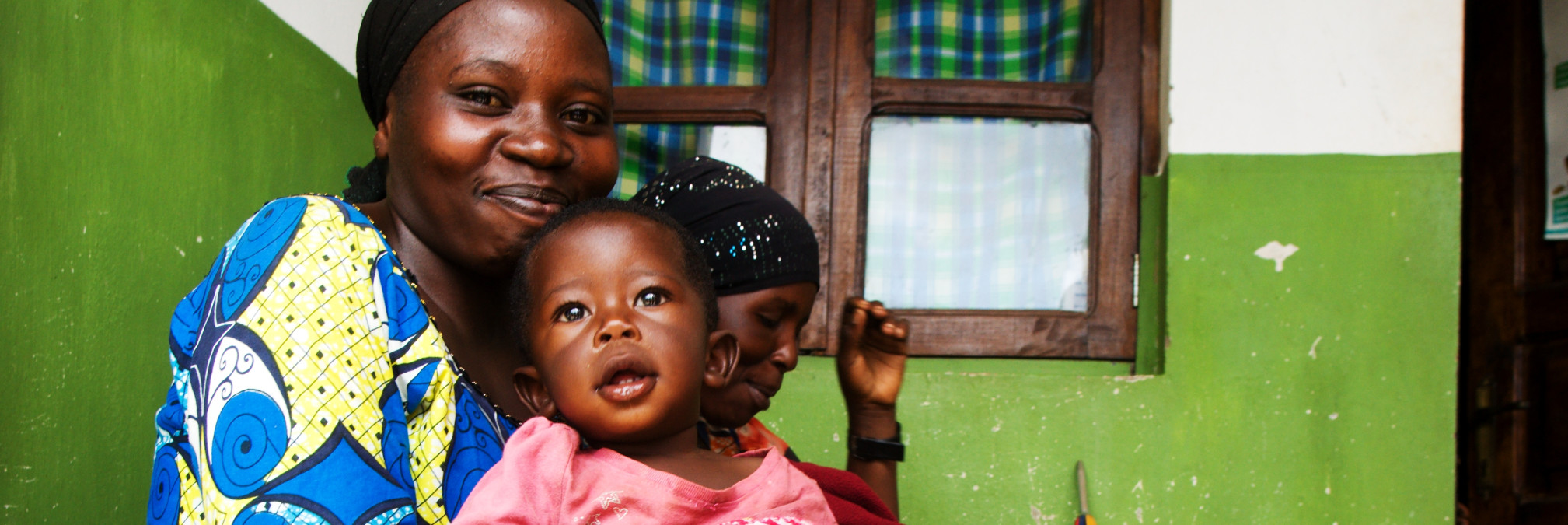South Kivu: Over 24 000 Burundian refugees live in fear, People in Need provides support
Published: Jul 26, 2016 Reading time: 4 minutes Share: Share an articleIt was Burundi in East Africa along with Syria, Afghanistan and South Sudan that were the largest source countries of refugees last year. After the presidential elections in Burundi, instability and politically motivated violence forced thousands of Burundians to flee Burundi to the neighbouring countries including the Democratic Republic of Congo (DRC) already overwhelmed with many problems on its own. Given the ongoing instability in Burundi, many refugees have remained in the DRC and their future is uncertain. People in Need (PIN) swiftly after the eruption of the Burundian refugee crisis provided support to the most vulnerable households from the host and refugee communities in the south of the South Kivu province. Between July 2015 and January 2016, PIN screened almost 22,000 children and women for acute malnutrition, and consequently treated more than 2,600 children and mothers. Simultaneously PIN provided support to 26 health centres in 4 health zones. PIN is one of the major providers of malnutrition assistance in the region.

According to the figures released by the United Nations High Commissioner for Refugees (UNHCR), more than 270,000 people fled from Burundi to neighbouring countries and this number is steadily growing. Almost 25,000 people have taken refuge in the DRC. In South Kivu alone, UNHCR registers there are more than 23,000 Burundian refugees. Such influx of refugees puts enormous strain on the local community, which is forced to share their already limited resources. “The world is slowly beginning to forget about the crisis but that doesn’t mean that it doesn’t exist. Refugees still arrive to the very poor area of Congo and meaningful intervention must include aid to the host community, „says the PIN`s Country director in the DRC, Karolina Sklebena. “During the seven-month-long programme, we focused on prevention and treatment of acute malnutrition in both local and Burundian women and children. Our support is based on the community approach, enhanced also by UNICEF, in order to improve the overall situation in the selected area,” she adds.
PIN supported organization of screenings of the most vulnerable groups of population (mainly pregnant and lactating women, and children below the age of five) for severe and acute malnutrition and, when necessary, offered adequate treatment. “We had supported the screening for symptoms of acute malnutrition in 22,000 children, pregnant women and nursing mothers and we subsequently provided the treatment for 2,656 persons, of those 2,629 were children below the age of five,” clarifies Karolina Sklebena. “The main problem for a child suffering from acute malnutrition is the nutrition itself, because this child cannot digest normal food,” she continues. “A patient like this needs to eat specific therapeutic food. We distributed 100,500 bags of therapeutic food. Even after finishing our project, we continued to monitor the situation in the area and we helped to provide another 12,300 bags ready for immediate consumption and 1,800 bags of therapeutic milk used in hospitals for cases of severe acute malnutrition.”
Acute malnutrition can be prevented. That is why humanitarian organizations and their local partners are committed to prevention and public education. Acute malnutrition is caused not only by poverty and food shortage, but also by the lack of access to safe water, insufficient hygiene habits, child neglect, and limited access to education or health care. PIN staff members, in collaboration with the experts from the local health centres administration, trained 210 community volunteers, who search for the cases of acute malnutrition among children and women in their communities and villages and give families information about appropriate means of prevention. These volunteers are active mainly in the south of South Kivu. They explain to mothers that infants should be breastfed until they are at least sixth months old, and they should not drink water instead of breast milk. They also teach the mothers what the best diet is for toddlers between 6 and 23 months old. It is important for them to gain all necessary minerals and vitamins for natural growth and mental development. The volunteers also draw families’ attention to right hygiene habits and usage of safe drinking water. In this way the volunteers are helping to reduce the risk of transmission of various infections and gastrointestinal diseases, which are among the main threats for the infants and toddlers.
The public education campaign in the local communities also offers special seminars as part of childbirth preparation and regular preschool examinations at health centres. Since 2014, PIN has been one of the main providers of malnutrition aid in South Kivu. Supported by the United Nations Office for the Coordination of Humanitarian Affairs (UNOCHA) and in cooperation with UNICEF, PIN participates in leading a coordination group of UN agencies and both international and local non-governmental organizations and their food and nutrition related activities in South Kivu.
PIN has been active in the DRC since 2008. Besides the fight against malnutrition, PIN also concentrates on the improvement of quality and accessibility of health care and safe water for the inhabitants in the countryside. “Last but not least, we strive to enhance legal awareness among remote and vulnerable communities by theatre and radio campaigns coupled with regular community meetings. At the same time we also attempt to increase access to justice of the same communities by bringing the legal system to them through mobile courts targeting among other also isolated villages,” says Hana Vitnerova, coordinator of PIN’s programmes in the DRC. “Our aim is to empower communities to influence and change their own lives and strengthen the rule of law leading to improved living conditions,” she adds. PIN’s programmes in the DRC would not be possible without the generous support of donors from PIN`s Club of Friends, Real gift and the Real Aid fundraising campaign. We would like to thank all our donors for their support!









